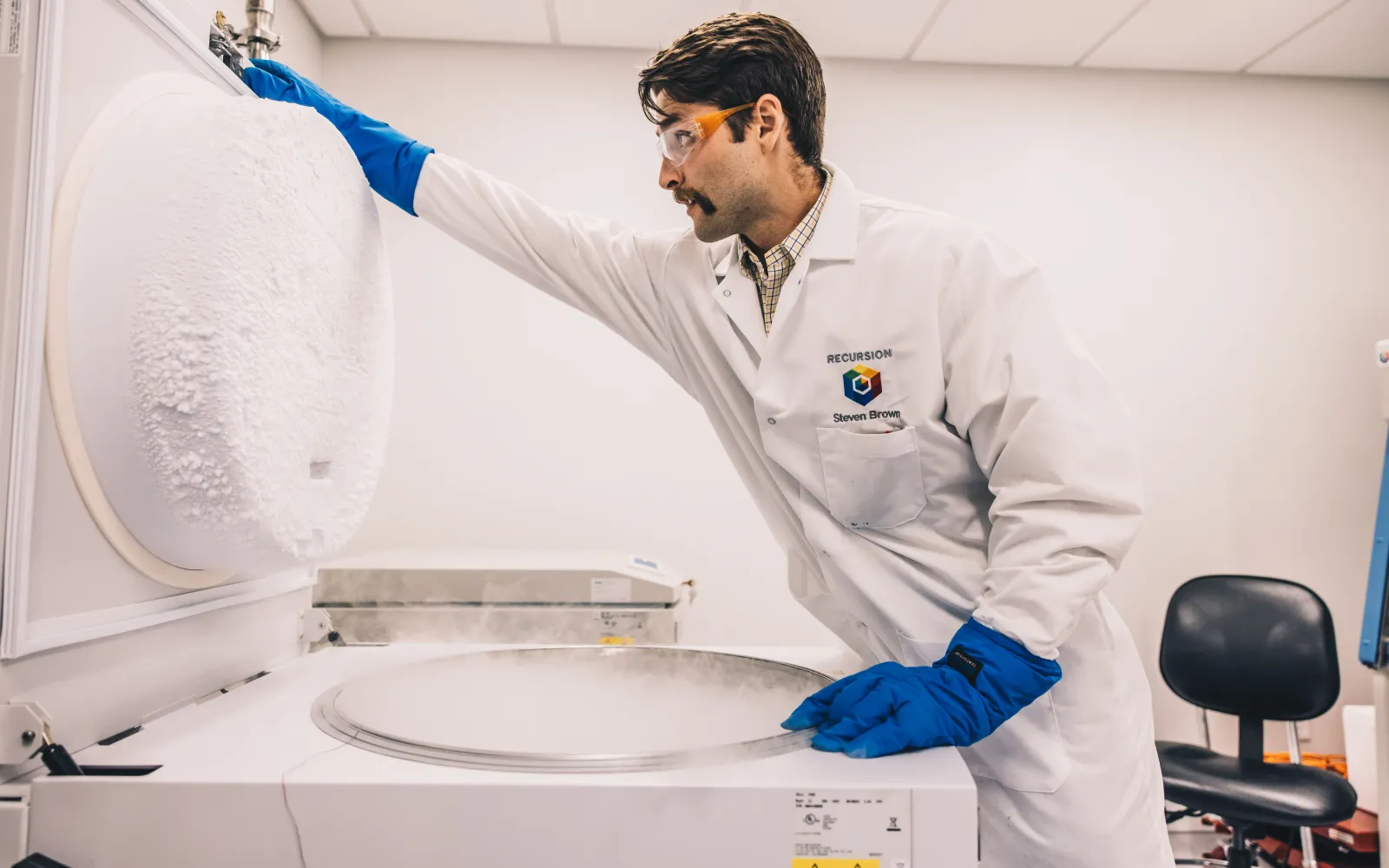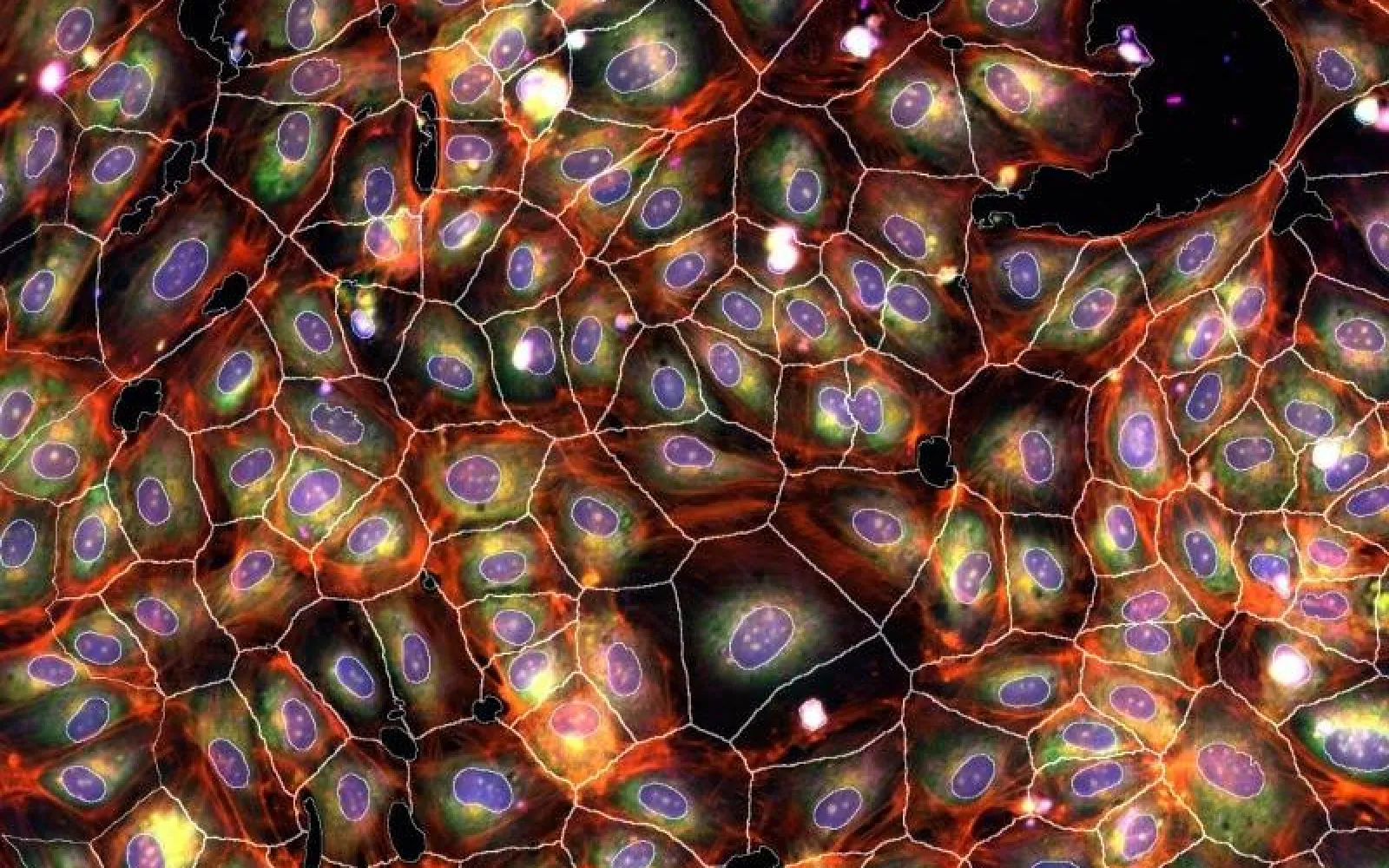

Recursion Pharmaceuticals
Turning drug discovery into a search problem
While common diseases like diabetes and heart disease draw widespread attention and treatment, rare diseases that most have never heard of (think, ataxia-telangiectasia, metachromatic leukodystrophy or neurofibromatosis type 2) are a grave, daily concern for an estimated 30 million Americans. They wait for a treatment or a cure, and — like the drug testing and approval process itself — that lag time can be long and fraught with risk.
Recursion Pharmaceuticals isn’t waiting. The company combines deep learning, computer vision, and robotic automation to generate and analyze millions of microscopic images of human cells every week. In each image, they precisely measure thousands of cellular and subcellular features, which allows Recursion to understand what diseased cells look like, how they differ from healthy ones, and how they respond when treated with different compounds. Compounds that make diseased cells look like healthy cells can be potential cures.
Recursion has already generated more than 30 discovery programs across more than two dozen diseases, with its lead programs expected to enter clinical trials in early 2018. Significantly, Recursion has expanded its platform to identify new potential treatments in broad areas like inflammation, immuno-oncology, infectious disease and aging. DCVC’s investment won’t just be going to more clinical trials, it’s going toward building a way to find treatments for thousands of diseases.
DCVC invested in Recursion early because it dovetails with our focus on deep tech applied to disrupt a fundamental industry, and we then gained conviction to lead the Series B because the platform has proven to be massively productive. Recursion’s model exemplifies our investment strategy, combining algorithmic advantage (in computer vision and optimization) with a continually growing proprietary dataset (of pharmaceutical and disease profiles and interactions), driven by an elite team with deep industry expertise (uniting pharmacology, AI and robotics).
To give context to the scale at which Recursion operates, in the field of morphological profiling, the community largely relies on a small handful of datasets, each of which consists of around 1TB of image data — Recursion generates 18TB of image data every week. Dr. Yoshua Bengio, one of the pioneers of deep learning and an advisor to Recursion, was drawn to the opportunity for discovery presented by such a dataset.
By coupling its data with world class deep learning models, Recursion can move beyond probing a small area of biology and start modeling and connecting the dots systemically. Its targeted approach is leading the company to a high-resolution map of biology faster and more inexpensively than previously thought possible. Such a map would allow Recursion to significantly increase the speed and decrease the cost of finding treatments, maybe even to the point where it can identify just the right drug for the right patient at the right time.
We are excited and proud to support Recursion’s mission of curing 100 diseases in the next 10 years.




